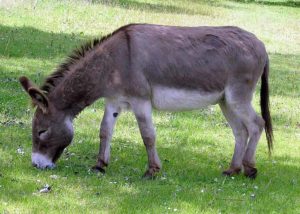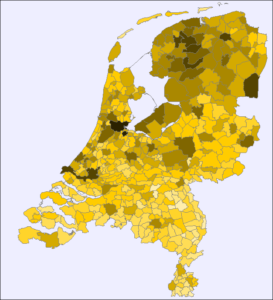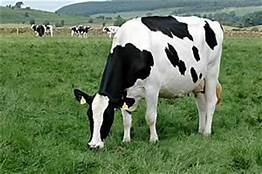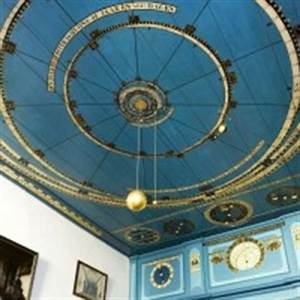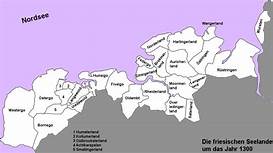TEN PROPHETIC CLUES CONCERNING ISSACHAR – FRISIANS
Holland
There is no direct history connecting the tribe of Issachar to the Frisian people. We are talking about one of the lost tribes. Even the Caucasian population of the Netherlands comes from various backgrounds. One can compare this with Jewry. The Jewish people have known many proselytes, yet, there has been a core of the tribe of Judah (and some of Levi & Benjamin) over the past 2500 years. The core passes on characteristics and genes to the periphery. Looking at the ‘prophetic clues’ one has to conclude that a core of the tribe of Issachar once found its way to the northern parts of the Netherlands and Germany (the people north of the line Amsterdam-Bremen). This core passed on its characteristics and genes to the influx of others. The more fulfilled prophetic clues we find the stronger our case. What follows is not historic proof, but proof by revelation.
1st Clue: Issachar – strong ass
Issachar is a STRONG ASS couching down between two burdens (Genesis 49:14, KJV, unless mentioned otherwise).
Issachar is a LARGE-BONED ASS, couching down between the sheep-folds (Genesis 49:14, JPS).
The patriarch Jacob compares his son Issachar to a stubborn, strong boned, donkey (mule). The stubbornness, the strong will of mules and donkeys are well known. Think of the story of Balaam and his donkey. If a donkey refuses to move, it is virtually impossible to make it go.
Frisians are known for their pride, common sense, stubbornness, determination, hence the Dutch expression ‘Friese stijfkop’, which translates as ‘stiff-necked Frisian’ or ‘hard headed Frisian’. If a Frisian does not want to move, it is hard to make him go!
There are two emblems for the tribe of Issachar: the ass or donkey (Genesis 49:14a) and the sun & moon (I Chronicles 12:32).
2nd Clue: Issachar’s land is pleasant
And [Issachar] saw that REST was GOOD, and the LAND that it was PLEASANT (Genesis 49:15a).
When [Issachar] sees how GOOD is his RESTING-PLACE and how PLEASANT is his LAND (Genesis 49:15a, NIV).
For those who know little or nothing about Frisians, Greater-Frisians or history of the Frisians, my advice is to study that first. Nowadays a lot can be found on the internet.
English Wikipedia starts the article Frisians with: The Frisians are a Germanic ethnic group native to the coastal parts of the Netherlands and Germany. They are concentrated in the Dutch provinces of Friesland and Groningen and, in Germany, East Frisia and North Frisia, that was a part of Denmark until 1864. They inhabit an area known as Frisia. The Frisian languages are still used by 500,000 speakers; dialects of Frisian are recognized as official languages in both the Netherlands and Germany.
The Frisians in the Netherlands live in West Frisia, the province of Friesland, the province of Groningen and the West Frisian isles. The Frisians in Germany live in East Frisia, North Frisia, Helgoland and the East Frisian isles. It is worthwhile to study these areas first on Wikipedia and then read the rest of this article.
The Frisians are fond of their earth, ground and land. The English bless their king or queen in their national anthem, the French sing about their revolution and the Dutch have a psalm-like national anthem about William of Orange, but the Frisians sing about their land. The words land, ground and earth feature seven times in the first stanza and chorus of the Frisian national anthem.
In that light we should see the Frisian lands. The seven stripes and the seven water lilies in the Frisian flag stand for those seven Frisian (sea-)lands. Those Frisian lands are lovely, agrarian, rustic, dotted with villages. Green polders, blue skies and white clouds, with black and white Frisian cows can be seen from West Frisia to East Frisia. Issachar saw that the land was pleasant. That’s why there is no independent Frisian nation.
3rd Clue: … between two burdens
Issachar is a strong ass couching down between TWO BURDENS (Genesis 49:14). Issachar is a scrawny donkey lying down between two SADDLE-BAGS (Genesis 49:14, NIV) (or CAMPFIRES, NIV note).
Bible interpreters interpret the mishpetaim, the two burdens, the two saddle-bags or campfires in different ways. Some see this as toil and taxes, but the pleasantness of the land makes Issachar bow its head.
Because the land is so good and so pleasant Issachar is willing to stay and to submit to others.
Apart from the literal agricultural sense of hard work this can also be interpreted in a political way; the Frisians (Issachar) bowed their heads to stronger political nations: Holland and Germany. Greater Frisia became the northern fringe of both the Netherlands and Germany.
The Frisians had an independent kingdom in the 8th century (king Redbad). However, Jacob’s prophecies concern the end-time. The tribe of Issachar is one of the few tribes not to have a nation of their own in the end-time (acharit ha-yamim , Genesis 49:1). The blessing of Moses (Deuteronomy 33:18-19) hints at that as well, as there is no separate blessing for Issachar. Issachar’s blessing is incorporated in Zebulun’s blessing.
The Frisians suffer the German and Dutch dominance (the two burdens), because they are in love with their land.
4th Clue: Issachar – a wage slave
And Leah said, God hath given me my HIRE, because I have given my maiden to my husband: and she called his name Issachar [ish-SACHAR, man of HIRE or WAGES] (Genesis 30:18).
This refers back of course to the agricultural work Issachar would do, bow its back and labour away, in its fertile and tranquil land. Working, paying taxes and rejoicing the pleasantness of the land.
Issachar’s name goes back to the story of the mandrakes (v. 14-18). Reuben has found mandrakes, Rachel wants them and Leah gives them to her ‘to hire’ her husband Jacob back and make him sleep with her.
The Frisian agricultural lands have not generated enough work for the local population over time, therefore many Frisians have spread out over the rest of the Netherlands. Issachar (the older of the two) serving Zebulun (the younger of the two).
Frisians have played an important role in Holland’s political and cultural life, bigger than their number would expect, Standaard Encyclopedie, vol. 5, page 404.
Traditional jobs have been politicians, civil servants, doctors, teachers and lawyers. Many people in the Randstad (=Utrecht-Amsterdam-The Hague-Rotterdam) have Frisian surnames. Issacharites are often highly qualified ‘wage-slaves’, or men of wages.
Wikipedia: De Vries is one of the most common Dutch surnames. It indicates a geographical origin: “Vriesland” is an old spelling of the Dutch province of Friesland (Frisia). Hence, “De Vries” means “The Frisian”. The name has been transcended abroad to “DeVries”, “deVries”, or “Devries”.
5th Clue: Issachar, cows! husbandry!
And of Zebulun he said, Rejoice, Zebulun, in thy going out; and, Issachar, IN THY TENTS (Deuteronomy 33:18).
Issachar is a large-boned ass, couching down between the SHEEP-FOLDS (Genesis 49:14, JPS).
Zebulun is particularly blessed in his journeys and Isachar more at home, in his tents, the latter having to do with husbandry. The Issacharites in the end-time would love their land, which would be very suitable for agriculture in general and for husbandry in particular. The Testament of Issachar has the last words of the patriarch Issachar for his posterity. These words may never have been spoken, but they give extra knowledge about the tribe of Issachar and how the Issacharites were seen in ancient times. Issachar admonishes his sons to apply themselves to husbandry in particular:
When, therefore, I grew up, my children, I walked in uprightness of heart, and I became a husbandman for my father and my brethren, and I brought in fruits from the field according to their season … Bow down your back unto husbandry, and toil in labours in all manner of husbandry, offering gifts to the Lord with thanksgiving. …
For no other portion is given to you than of the fatness of the earth, whose fruits are raised by toil. For our father Jacob blessed me with blessings of the earth … Know ye therefore, my children, that in the last times your sons will forsake singleness, and will cleave unto insatiable desire … And leaving husbandry, they will follow after their own wicked devices … , The Testament of Issachar.
The Frisian cows are among the best cows in the world, with the highest milk production. Frisians are so well-known as cows, that many English do not realize that
Frisians are a people too. Husbandry is one of the main identifiers of Issachar.
There is a Frisian horse too. The Frisian island of Texel has its own brand of sheep and there is also a kind of East Frisian sheep, which has a very high milk production. Issachar would be blessed with the fruits of the earth, and with livestock in particular.
In 2010 the Netherlands exported for 4.6 billion euros of dairy products. The 2010 export was 157 million kilos of butter, 247 million kilos of milk-powder, 259 million kilos of condensed milk and 576 million kilos of cheese. All this made from 6 billion kilos of milk. No need to say the Frisian north of the country had an important input.
The Netherlands is the second biggest exporting country of agricultural products in the world.
6th Clue: Issachar, singleness, simplicity
Issachar, the fifth son of Jacob and Leah…
24 When, therefore, I grew up, my children, I walked in UPRIGHTNESS of heart … 27 I never slandered any one, nor did I censure the life of any man, walking as I did in SINGLENESS of eye (The Testament of Issachar, Chapter I).
Frisians are honest, sincere, down-to earth, straightforward, single-minded people. Even more so than-the Dutch in general.
Straight, sober and square are terms Frisians are known by in the rest of the country. Just act normal, that’s weird enough, is their creed.
This fits in with the Testament of Issachar, which is also called the testament of singleness or simplicity:
The Fifth Son of Jacob and Leah .. . He appeals for simplicity … When, therefore, I grew up, my children, I walked in uprightness of heart... And my father blessed me, for he saw that I walked in rectitude before him. And I was not a busybody in my doings … walking as I did in singleness of eye … The single-minded man coveteth not gold, he overreacheth not his neighbour, he longeth not after manifold dainties, he delighteth not in varied apparel … For he walketh in singleness of soul, and beholdeth all things in uprightness of heart … Keep, therefore… the law of God, and get singleness, and walk in guilelessness … love the Lord and your neighbour, have compassion on the poor and weak … and walk in the singleness of your father… Know ye therefore, my children, that in the last times your sons will forsake singleness, and will cleave unto insatiable desire. And leaving guilelessness, will draw near to malice .. . and walk with men in singleness of heart.
In the light of all this it is noteworthy that the Amish and Mennonites trace their history back to Menno Simonsz. (1496-1521), a Frisian Anabaptist reformer. Because he was persecuted in Friesland proper, he fled to East Friesland.
7th Clue: Issachar, knowledge of the times
And the children of Issachar, which were men that had UNDERSTANDING OF THE THE TIMES, to know what Israel ought to do; the heads of them were two hundred and all their brethren were at their commandment (I Chronicles 12:32)
According to commentators, this understanding of the times had to do with the mathematical and astronomical knowledge of the Issacharites, which enabled them to make calendars and/or know the times.
Matthew Henry’s Commentary: They were men of great skill above any of their neighbours, men that had understanding of the times, to know what Israel ought to do. They understood the natural times, could discern the face of the sky, were weather-wise, could advise their neighbours in the proper times for ploughing, sowing reaping, etc. Or the ceremonial times, the times appointed for the solemn feasts; therefore they are said to call the people to the mountain (Deuteronomy 33:19 ), for almanacs were not then so common as now.
Because of their knowledge of the times, the second emblem of the tribe of Issachar is sun & moon. This emblem is used more often than the donkey.
Frisians traditionally have a feeling for arithmetic and mathematics; think of Eise Eisinga’s Planetarium in Friesland, Wikipedia:
The Royal Eise Eisinga Planetarium is an 18th-century orrery in Franeker, Friesland, Netherlands .. . The orrery was built from 1774 to 1781 by Eise Eisinga … The Eise Eisinga Planetarium is the oldest still working planetarium in the world. To create the gears for the model, 10,000 handmade nails were used. In addition to the basic orrery, there are displays of the phase of the moon and other astronomical phenomena.
Eise Eisinga was a Frisian who, through self-education, mastered mathematics and astronomy. He was not alone doing this at the time.
My Frisian friend Jaap Heeringa, is a former farmer (husbandry), who founded and leads the Mo’adim Foundation. Mo’adim – Hebrew for appointed times – advocates the celebration of Sabbaths, New Moons and Feasts of the LORD. Another good example of an Issacharite with an understanding of the times … to know what Israel ought to do.
8th Clue: trade & shipping
And of Zebulun he said, Rejoice, Zebulun, in thy going out; and, Issachar, in thy tents. THEY shall call the people unto the mountain; there THEY shall offer sacrifices of righteousness: for THEY shall SUCK THE ABUNDANCE OF THE SEAS, and of treasures hid in the sand. (Deuteronomy 33:18-19.).
Numerically the Frisians up north are not of great importance. Most of the Greater Frisians from the north have spread out over the rest of the country. I feel it is safe to say that the Dutch – except for the south – are in general descendants of two tribes, Zebulun and Issachar. In a way this mix is predicted by Moses. In a sense he has only 10 blessings. Simeon is not mentioned (I will scatter them in Israel, Genesis 49:7). Ephraim and Manasseh are together in Joseph’s blessing and Zebulun and Issachar are together in Zebulun’s blessing, hence the pronoun ‘they’.
THEY will suck the abundance of the seas! This is a clear end-time prophecy. Both Zebulun and Issachar were landlocked tribes.
Frisians were so dominant in trade and shipping in the 7th and 8th centuries, that the North Sea was often called the Frisian Sea. The naming of the seas is also revealing. The Frisians called the sea north of them North Sea, south of them Zuyderzee (South Sea) and in front of Leeuwarden the Middelzee (Middle Sea).
Sucking the treasures hid in the sand applies to both tribes as well. Most of the natural gas and North Sea oil is under the lands and sea of the Greater Frisian realm. It is of great importance for the Dutch welfare state.
9th Clue: knowledge of the law
And of the children of lssachar, which were men that had UNDERSTANDING of the times, to KNOW what Israel OUGHT TO DO; the heads of them were two hundred … (I Chronicles 12:32)
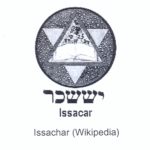 One may well be good in arithmetic and mathematics, but the above verse also stresses that the Issacharites KNEW the times and KNEW what Israel OUGHT TO DO. This of course is not possible without Torah knowledge, without knowledge of God’s law.
One may well be good in arithmetic and mathematics, but the above verse also stresses that the Issacharites KNEW the times and KNEW what Israel OUGHT TO DO. This of course is not possible without Torah knowledge, without knowledge of God’s law.
That’s why the rabbi’s have a second explanation of this verse saying that the Issacharites excelled in Torah knowledge, in knowledge of the LAW. Sometimes this is portrayed by an emblem of an open book.
It is therefore interesting to see that there is quite a close connection between Frisians and laws:
Wikipedia: Lex Frisionum , the “Law Code of the Frisians”, was recorded in Latin during the reign of Charlemagne, after the year 785, when the Frankish conquest of Frisia was completed by the final defeat of the Frisian king Radboud. The law code covered the region of the Frisians.
The Kodeks Roarda is a medieval document with Latin and Old Frisian law texts (Wikipedia)
The Seven Frisian Sealands of the Middle Ages would come together at Aurich (East-Friesland) around Pentecost (Pentecost, the giving of the law!). There they would judge, discuss law for the Seven Frisian Sealands.
10th Clue: call the people unto the mountain
THEY [Zebulun & Issachar) SHALL CALL THE PEOPLE [peoples, JPS] UNTO THE MOUNTAIN ; there they shall offer sacrifices of righteousness .. . (Deuteronomy 33;19).
In Biblical language a mountain often portrays a kingdom:
And it shall come to pass in the last days, that the mountain of the LORD’S house shall be established in the top of the mountains … And many people shall go and say, Come ye, and let us go up to the mountain of the LORD . .. (Isaiah 2:2-3).
The Low Countries (Zebulun & Issachar) have played a significant religious role over the past centuries. Just to name a few examples: Gerard Groote (1340-1384) was a Dutch preacher and founder of the Brethren of the Common Life and a key figure in the Devotio Moderna movement; Thomas a Kempis became a follower of the Modern Devotion in Deventer and wrote The Imitation of Christ.
Wikipedia about the Imitation: The Imitation is perhaps the most widely read devotional work next to the Bible … Apart from the Bible, no book has been translated into more languages than the Imitation of Christ.
Wikipedia about Erasmus: Erasmus .. . was a proponent of religious toleration … “Prince of the Humanists”; he has been called “the crowning glory of the Christian humanists”.
There are many Dutch organisations which are not known in the Anglo-Saxon world. Suffice to mention the Frisian reformer Menna Simons (Mennonites); the Pilgrim Fathers who stayed in Leiden; Dutch evangelist Johan Maasbach; Anne van der Bijl, founder of Open Doors; Corrie ten Boom; Karel van Oordt, founder of Christians for Israel; etc.
Zondervan publications in Grand Rapids, USA, was founded (1931) by people with Dutch ancestry. Zondervan is a Dutch surname, dominant in the province of Friesland.
Shield of Zebulun and Issachar calling the nations unto the mountain (by my friend RAF Steinfort). The sailing boat is Zebulun’s emblem and the sun and moon is Issachar’s. White is Zebulun’s colour and black is Issachar’s colour. The mountain signifies God’s Kingdom. Some say that the two witnesses (Revelation 11) will be from the tribes of Zebulun and Issachar, calling the nations to repent, before the Second Coming.
Some extra maps:

